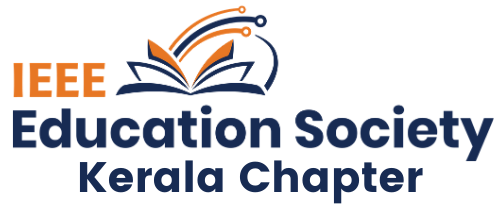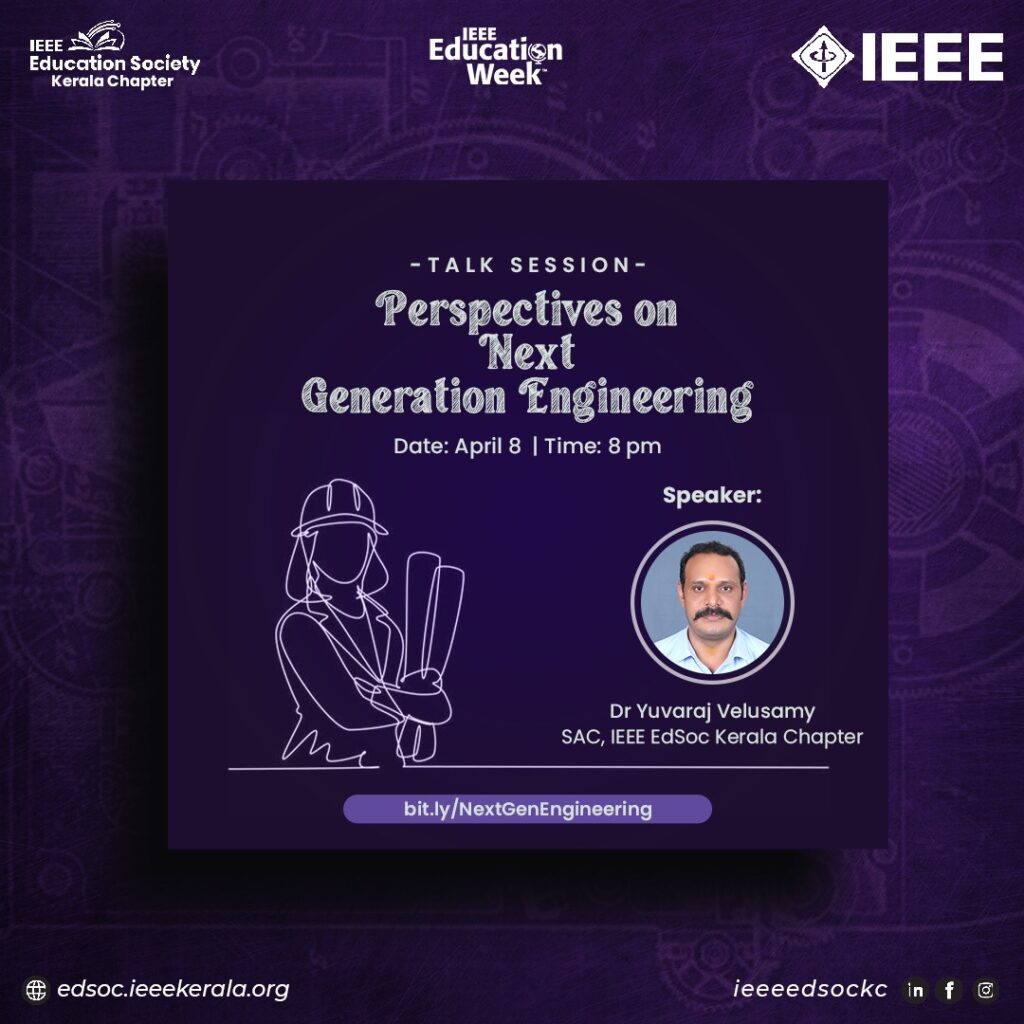

The session began with a warm welcome by Ms Diya Jose, Content writer of IEEE EdSoc Kerala Chapter. The mic was then handed over to the speaker after a welcome speech by Mr Anzar S M, Research Activities Chair, IEEE EdSoc Kerala Chapter. Dr. Velusamy started his presentation by highlighting the need for a human-centered approach to engineering. He emphasized the fact that engineering should not be a purely technical process, but rather, it should be focused on the betterment of society.
He discussed the importance of incorporating social, ethical, and philosophical perspectives into engineering. He noted that the future of engineering would be shared by new technologies, some of which are now here, and some of which are yet to be discovered.
Dr. Velusamy then spoke about the need for engineers to understand biology and biomedical engineering thoroughly. He discussed how engineers have just started observing biological processes to design and solve problems. He gave examples of artificial organs and limbs and how they are changing the lives of people with disabilities. He also discussed the development of artificial intelligence and how it is changing the field of medicine.
Dr. Velusamy emphasized the importance of observing nature and mimicking its processes. He spoke about the new field of biomimicry and how it is helping engineers to create new and innovative technologies. He highlighted the fact that humans have been observing nature and mimicking.
Finally, he introduced some AI tools which will be dominating the human race in the future. This gave an impressive and informative ending to the session. Afterwards, a virtual photograph was clicked and the speaker was open to the Q&A session. Dr Gayathri Manikutty, STEM and HAC Co-ordinator of IEEE EdSoc Kerala Chapter delivered the vote of thanks, and a virtual memento was presented to the speaker. The meeting adjourned with everyone wishing a peaceful good night.
3/08/2023 | 8:00:00 PM
Participant: 67 | IEEE 67 | Non-IEEE 0 | Undergraduate | General

IEEE and its members inspire a global community through highly-cited publications, conferences, technology standards, and professional and educational activities.
Copyright © 2024 IEEE Education Society Kerala Chapter